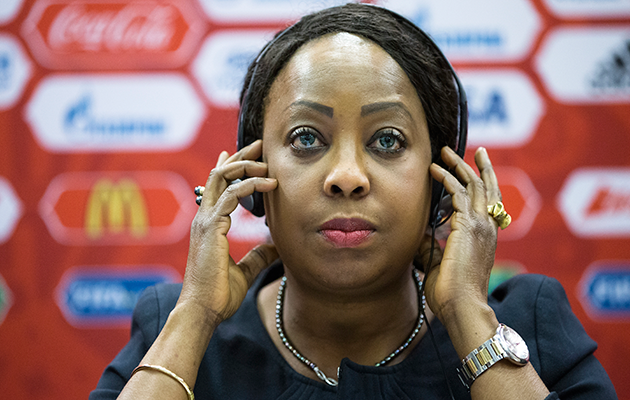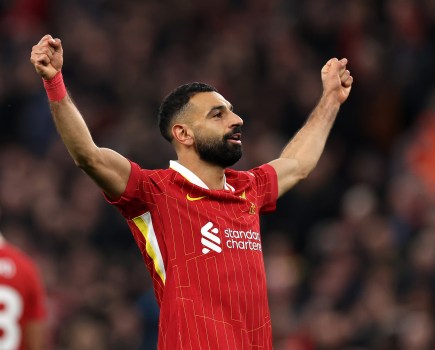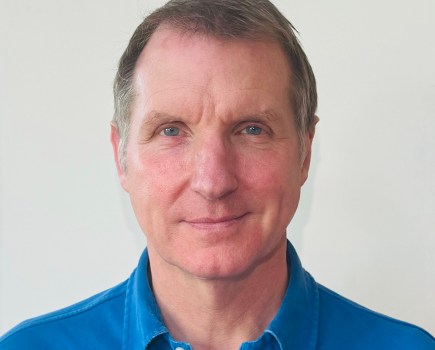Secretary-general Fatma Samoura has sought to explain and defend FIFA’s perceived own goal of clumsily disbanding its anti-racism task force.
It emerged at the end of last week that a panel set up during the latter years of Sepp Blatter’s increasingly derided reign as president of the world football federation had been scrapped.
A letter sent out to the members of the task force merely confirmed what most of them had suspected from a lack of both meetings and also leadership.
The first president of the task force was Jeffrey Webb, the Cayman Islands banker who was head of CONCACAF and now sits under house arrest in the United States awaiting sentence in the FIFAGate corruption case.
Once Webb had been detained by the authorities, initially in Zurich, in May 2015, the panel’s work virtually ground to a halt.
The decision to kill it off was criticised by Andy Burnham, the senior Labour Party politician and Manchester mayoral hopeful, at the opening of the Soccerex Global Convention in the city.
He said: “I worry about that decision with a World Cup looming in Russia. I don’t think we can be complacent and feel that we have succeeded in the fight against racism in sport.
“Football is used as a vehicle to bring people together but, in the same way, also by extremists to try to divide people. We need to be even more challenging now in the game’s response to racism and send a message to the world that we will not tolerate any form of racism and hate in our great game because it poisons it and allows the extremists to win.”
Minutes later Samoura, making her debut on a major football conference stage after her ‘transfer’ from the United Nations in June, tried to allay Burnham’s concerns in her own keynote address.
Departing from her prepared text, she said: “The task force had a specific mandate which it has fulfilled and now we will turn its work into a programme – and a strong one – about zero tolerance against discrimination on the grounds of culture, races, colour of the skin and sexual orientation.”
Later she was brought back to the issue by conference moderator David Davies who suggested that the manner of the decision had sent out the wrong message of complacency.
Samoura reiterated: “The task force had a specific mandate and came up with strong recommendations which FIFA is acting on.”
She committed herself and FIFA to ever-stronger action in future against “not only racism but any kind of discrimination including violation of human rights.”
The latter comment will be of particular interest to international trades unions and human rights pressure groups monitoring events in Qatar, in building the infrastructure for the 2022 World Cup, and in the Middle East, where concerns have just been highlighted about the fall-out for sport from the Israel-Palestine complexities.
Serious concerns have also been aired, ever since the controversial 2018-2022 World Cup bidding process began, about racist behaviour by Russian hooligan fans. These concerns were exacerbated by the violent scenes provoked largely by Russian trouble-makers in Marseille during this past summer’s European Championship finals in France.
The response of the Russian World Cup organisers has varied between a denial of the issue to assurances that it was being addressed.







